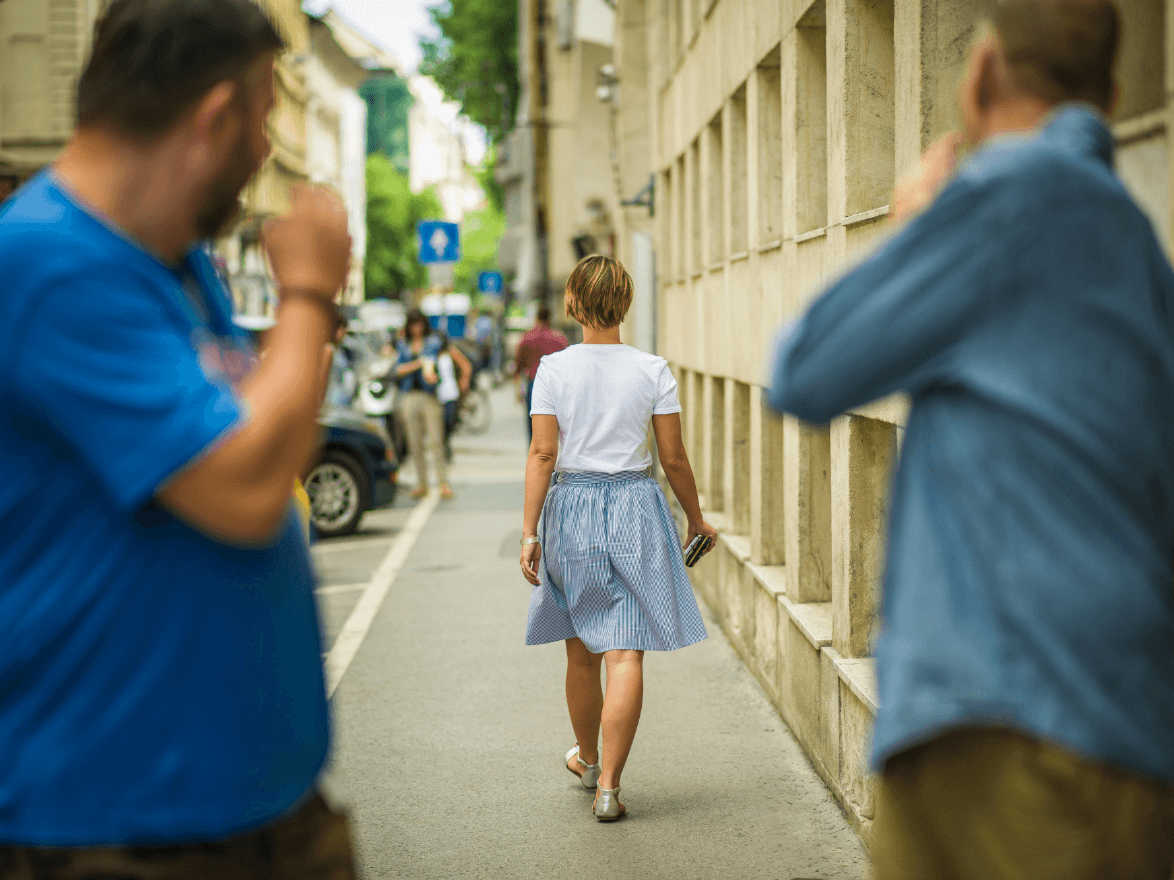A survey shows 19% of girls aged 14-21 have received unwanted attention or sexual assault in public spaces during lockdown. Do people feel worse getting harassed during lockdown than they would have before?
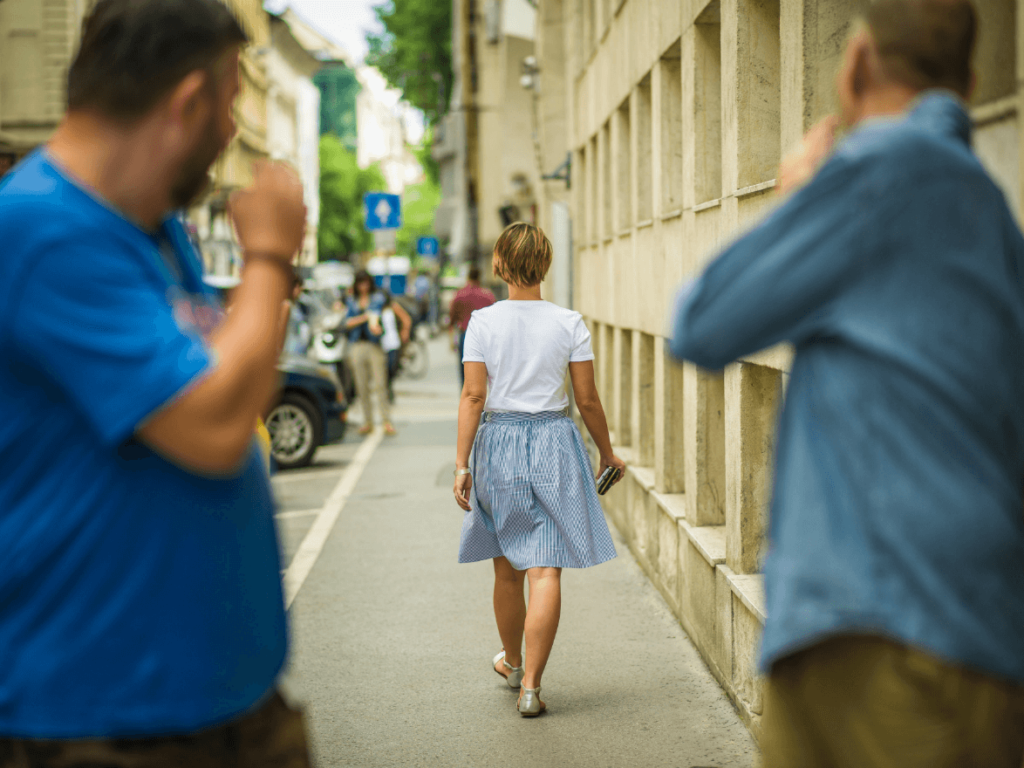
Source: talkspace.com
“Today whilst out on my walk, 2 men wolf-whistled out their van whilst 1 licked his lips & the other muttered ‘sexy’ as they drove past.” Jess Excell wrote on Twitter on April 20, about one month after the lockdown was announced in the UK.
From being stared at while walking on the road to being forced to see a man exposing himself, women around the world are experiencing street harassment in many ways in their daily lives. It is so common an issue that some usually ignore it so long as they are physically safe. But what really shocks women in the UK is even the infectious COVID-19 can not stop some people from taking advantage of them.
The global Coronavirus pandemic appeared in the UK earlier this year. In March, a nationwide lockdown was announced by the Government. Closed shops, once-a-day outdoor exercise, no visitors policy. Suddenly we live in a society where social distance has never been addressed like this before. In a big city like London, where daily cases rose by the hundreds, it took more risk to go out for shopping or once-a-day outdoor exercise. But even under this condition, many women felt catcalling was more frequent than before. They said some men even ignored the guidance, walking towards them on an empty street.
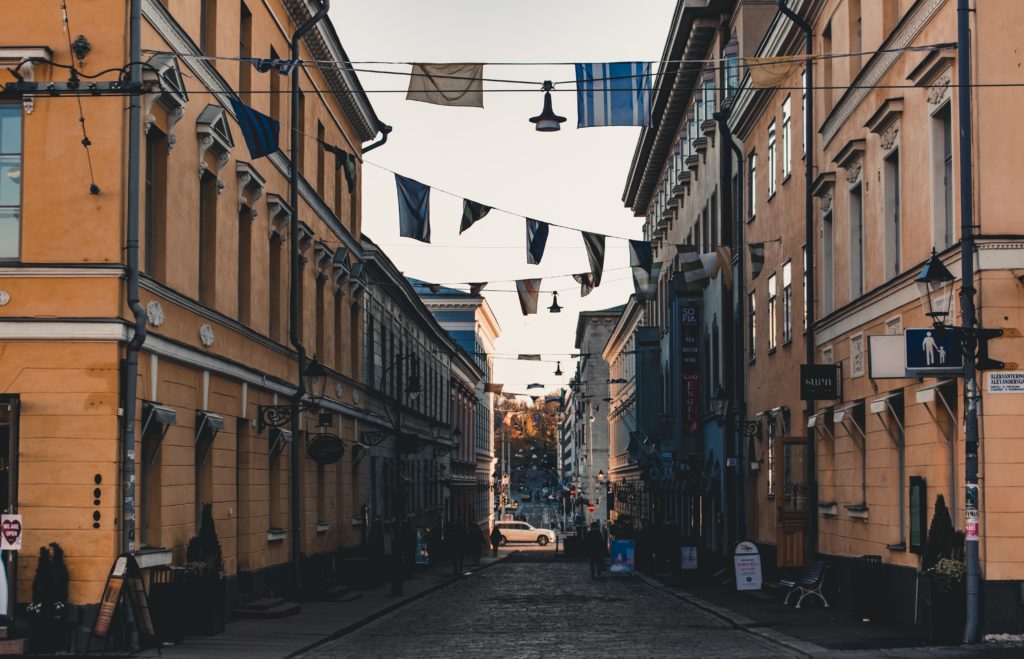
Caitlin Prowle, a girl based in London and South Wales, shared her experience on Twitter in July. During the ten-minute round trip to the supermarket in the morning, she was catcalled three times by different people.
Beside stories from the individual, statistics seem to suggest the same problem. In May 2020, Child charity Plan International UK published a document called “The State of Girls’ Rights in the UK” on their official website, giving the public early insights of impacts of the coronavirus pandemic on girls. Girls’ safety in public spaces is listed as the first problem. According to a survey they made recently, despite the reduction in time spent outdoors, 19% of girls aged 14-21 have experienced unwanted sexual attention in public spaces.
Although this is a shockingly large amount when traffic is much less than ever, this number doesn’t represent all women. Countless women beyond this age group have experienced, and even worse, might be going to experience street harassment.
Just like Caitlin wrote in her tweet: “I’m not sure how or why but it’s gone from bad to awful.”
Why street harassment happens during lockdown
Although street harassment is unfortunately not a surprising thing to happen in society anymore, many people like Caitlin still think it shocking. During lockdown when everyone is facing risk of being infected while going out, catcalling still happens, even getting worse than during life before COVID-19. Many victims said on social media that they couldn’t believe harassers were willing to take the risk to get closer to them.
American Women’s Magazine Allure tried to give an answer in their article, Why Are People Still Catcalling During a Pandemic?
In the article, Olivia Zayas Ryan, a victim of ongoing street harassment during the pandemic, said harassers did this because they wanted to be seen, to be witnessed. Experiencing a global crisis in health and economy, it’s easier for them to feel frustrated and belittled. This can be due to loss of employment, or a sense of losing liberties (e.g. wearing a mask). Catcalling, with no doubt, is one of the easiest ways to grab people’s attention and, therefore, to claim their existence.
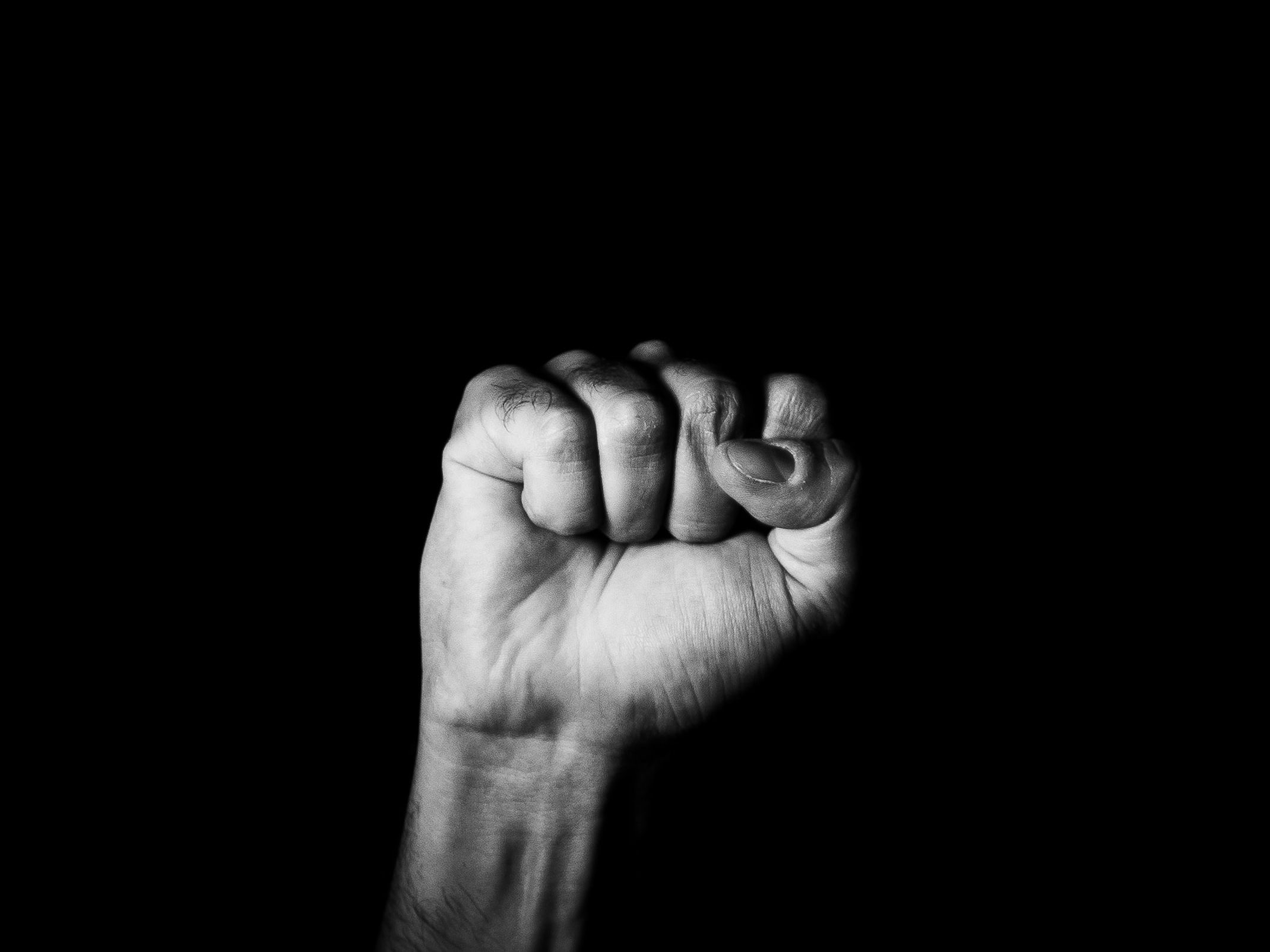
“Like other forms of sexual harassment, street harassment is about power and intimidation, so while we can’t speak to any one individual’s motivation, it does make sense that people who feel that their lives or personal situation is out of control might look to act out in some way to regain that control and power,” says Heather Drevna, Vice President of Communications at the Rape, Abuse & Incest National Network (RAINN). Karla Altmeyer, the co-director of movement Healing to Action has given Allure a similar reason. She said the world at large is out of control due to unemployment, health crisis and many hardships caused by coronavirus pandemic. So more people intend to use another easy way, which is catcalling, to claim their power, ownership or masculinity.
Reasonable as it seems to be, any explanation can not deny the terrible feelings and negative effects these harassers have brought to the victims. Maybe this happened to them at different times, in different locations, or in different ways, but most of them agreed on one thing: Street harassment during a pandemic made them more stressed than it happening at a normal time.
“With so few people around, it’s easier for men to take advantage of our vulnerabilities.”
Facing the rising number of confirmed cases, the Government has announced strict lockdown policies from March. Restaurants and shops were closed, social gathering was banned, residents were only allowed out for essential shopping and once-a-day outdoor exercise. With most social events cancelled and the majority of the population working from home, the streets are emptier than ever. This helps prevent the coronavirus from spreading. But when women feel harassed during lockdown, an empty street can make this experience much worse.
A 22-year-old girl studying in Cardiff, who doesn’t want to give her name, had an unsettling moment outdoors in April.
A man started staring at her with a smile when she was out for a walk after a day of study. When she walked past him, feeling relieved that the weird moment was coming to the an end, she realised that the man was following her.
“I couldn’t believe he was following me!” she said, “people stared at me or whistled at me, at normal time. I usually walked fast and I disappeared in the crowd.”
“But it’s the lockdown, no one was walking but me and him. I felt really scared.”
She walked nervously into the first supermarket she saw was open and paced inside for a while. Luckily, the man was gone, and she went home safely.
“I basically gave up on outdoor walking since it happened, until I felt like there were more people on the street.”
She was not the only one who felt more scared of street harassment due to quieter streets. Since April, The Telegraph, Channel 4, Independent and many other news platforms started to report the insults women received in public space during lockdown. They told the media that they were scared to fight back when no one was around. The survey of Plan International UK also shows that 52% of the participants said “they feel there are fewer people around to help if something happened to them”, 43% feel there are “fewer places they could go to if they needed to get away from someone or a situation”.
To cite a sentence from Harvard Journal of Law & Gender: “[w]hat if you get someone mad? You don’t know who they are, and you might end up raped or killed.” It perfectly describes the worry of women in current situation. The only thing they want during this awful time is to live as normally and safely as possible.
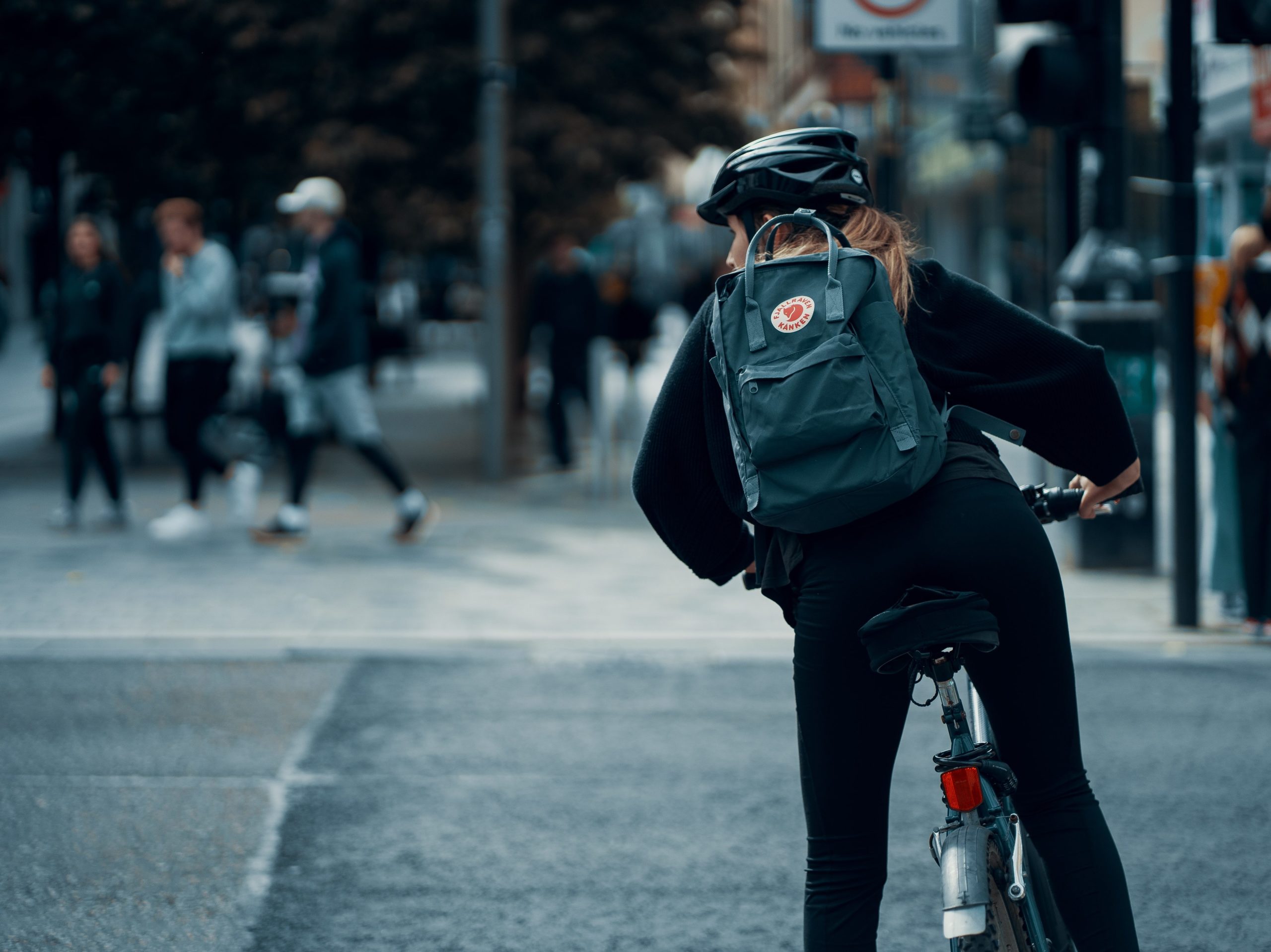
The priority is not to deal with this during the pandemic
Despite the large number of 14 to 21-year-old girls experiencing street harassment during lockdown, further data from Plan International UK shows that 26% of girls who had the experience didn’t tell anyone about it, for a variety of reasons. 26% believed that their issue would not be taken seriously. 23% thought this problem would not be seen as a priority during the coronavirus pandemic.
Since coronavirus appeared, this topic became the centre of society and everyone’s life. Hospitals are preparing for COVID-19 patients. Police are on the street preventing social gathering and unnecessary travels. Places you can go for help are closed to avoid face to face contact. Even when the news media posted a non-COVID story, the heated comment would be “Why do you post this during a global pandemic?”
As Covid-19 takes priority over everything, victims of street harassment feel unimportant.
To people who refused to suffer in silence, the outcome is not very satisfying as well.
Merel Veldhuizen, PhD student in Southampton, posted on Twitter about her experience of reporting street harassment to the local council on May 30.
According to Merel’s post, she and her housemate have been dealing with increased street harassment during daytime since lockdown, including catcalling, leering and spitting. She reported the situation to Southampton Council. But what she received was a link to the police website and a suggestion of looking at other locations to exercise where she “may not receive abuse”.
“Appalled that I am somehow made responsible for men’s active hostility and threatening behaviour.” Merel wrote under her original post, “where are we supposed to go?”
On June 1, the official account of Southampton City Council (@SouthsmptonCC) left a comment on Merel’s post asking for her contact details and saying they will look into this. However, on June 9 she updated her post, stating that although she provided her contact details, she had not heard from the local council about this issue.
“We’re still being bullied in local park.” She said on Twitter.
We still are not aware of anyone looking into this issue or solving the problem for her and for other women who might be bothered in that area.
But will posts like this stop victims to seek help from the authorities or even anyone else?
We are taking steps, but there is more we can do
Luckily, society has never stopped fighting against this issue. Plan International UK has been looking into girls’ and women’s safety in public spaces for a long time. In 2018, they launched a campaign #ISayItsNotOK, in order to encourage further awareness of how frequent street harassment occurs and how it affects girls and women’s lives and mental health.
In March 2019, the UK Government published its refreshed handbook Ending Violence against Women and Girls 2020, recognising street harassment as a form of gender-based violence. It states in the refreshed strategy that, “whether it’s in the workplace, on the street, or as part of domestic or sexual abuse; sexual harassment in any situation is unacceptable.”
Even though, stories shared by victims through news media and social media indicate that what we have done is not enough.
Maya Tutton and Gemma Tutton, founders of campaign Our Street Now, realised that specific legislations are needed to tackle this issue as well as calling for awareness and education. They initiated a petition titled “Make Street Harassment a Criminal Offence in the UK”. They pointed out that street harassment is illegal in France, Belgium and Portugal, so should be in the UK.
“We believe that making it a criminal offence will empower victims of harassment to report incidents, and dissuade harassers.” They wrote on the petition page.
By the end of August of 2020, more than 200,000 people had signed the petition.
The global pandemic gives us all problems to deal with: physical health, mental health, economic crisis and many others. But to some women, this is not everything. They have to deal with the rude language, weird smiles, and even unreasonable stalking when they are on the street.
Coronavirus may eventually pass, but street harassment will not go with it if we don’t take action. Without decisive steps it will continue to deeply effect women around us.
